I spent six fascinating hours at Westminster recently, listening to the views of the industry, Government and stakeholders from northern England and East Anglia. It really made clear to me where the rail industry is, where it could be, and (perhaps most importantly) where it should be.
I was the only member of the trade press at the East Anglian Rail Summit. This was the first time campaigners from the Great Eastern Main Line Taskforce, officials from the winning Abellio franchise, Government officials (including new Rail Minister Paul Maynard) and Network Rail representatives were able to get together after the franchise was awarded in August (RAIL 807).
There’s a lot to celebrate - 1,043 new carriages on order, allowing a complete fleet replacement. More services, faster journey times and more seats. But there were still huge questions relating to the infrastructure. And I hate to say it, but after the event there are still questions relating to the infrastructure.
Ipswich MP Ben Gummer challenged the presentation made by NR at the event. And don’t forget that this was the first time since the award that local politicians, stakeholders and rail industry bodies were able to get together to discuss the impact and what happens next, yet NR’s Route Managing Director Richard Schofield wasn’t there. He should have been, because infrastructure is vital to the franchise.
Abellio Greater Anglia Managing Director Jamie Burles highlighted that the new deal requires a vastly-improved performance, stating: “We cause 30% delays, Network Rail brings 60% and others are 10%. We will bring change with the new trains, but we need everyone achieving improvements.”
So, how is this to be tackled? Well, it was left to someone lower down the chain of command to have to deal with some really quite pointed comments, such as this from Gummer: “This franchise is a model for the railways. It is life-changing for all our constituents. We have an operator calling for economic growth. Network Rail talks of engineering and we have heard of the money release. Yet not £1 has been spent on the suggestions from the Taskforce.
“A premium of £3 billion is being spent and yet you discuss pinch-points. Network Rail has to deliver. Getting a plan out of Network Rail is hard. If this is Network Rail’s current position, it cannot deliver what is needed.”
Wow. The answer, I have to say, wasn’t great, and it took more probing from Gummer before NR’s Chris Rowley (principal strategic planner for London and the South East) admitted that pinch-points were the priority. This rather goes against the Taskforce’s belief that there would be improved line speeds, and leaves me wondering how faster journey times will be achieved on an increasingly busy rail network that must accommodate the needs of both freight and passenger operators.
Abellio must pay a £3.7 billion premium over the next nine years, and it will need everyone pulling together. Yet coming away from the summit, it felt like one party - NR - wasn’t singing from the same hymn sheet as the others.
After that meeting, it was off to hear from a selection of MPs and members of Rail North regarding plans for the North’s railways.
Here is another part of the country that has successfully lobbied for improvements. But could more be done? Arguably yes, although this is a region where a fleet of ten-year old trains (Class 185s) will largely be replaced by a fleet of new and faster trains, where a campaign to remove Pacers from the rails has been successful, and where central Government has relinquished control to a region that knows exactly what it needs.
As Rail North Chairman Liam Robinson said: “This is the start of devolution. We look at Merseyside, London and Scotland and we see fully devolved paths. We want that for the North.”
You need only look at RAIL’s National Rail Awards and read the story of this year’s Passenger Operator of the Year to witness what is possible when local control is exercised over the railways. Or, as we say often in RAIL, visit Scotland, which often leads the way in terms of investment and planning.
Northern Managing Director Alex Hynes regularly speaks passionately about the “transformational” plans for the next few years, but then it must be remembered that electrification will be key.
We’ve witnessed the mess of the Great Western Electrification Programme running late and over-budget (NR still cannot give me a date for wires to Swansea), the Edinburgh to Glasgow electrification scheme slipping and over-budget, and last year’s introduction of North West electrification was several weeks late. It doesn’t fill you with confidence, and NR must string wires up across the Pennines in a scheme promised to transform the fortunes of passengers and operators.
When the Rail Minister, Shadow Transport Secretary, train operating MDs et al can talk of their plans and aspirations, we must hear from NR to back these schemes up.
NR strives to do a good job most of the time, but for big projects that have a huge impact, things must improve. Get that right, and the rail industry will (I believe) be firing on all cylinders.
It’s frustrating because these two regions highlight that while there is a good feeling about the railway, it could be so much better.
The Anglia summit exposed the lack of planning. More than £1bn is being spent on new trains, and yet campaigners have had to point out to NR that 15,000 new homes are being built in the town of Colchester. NR was unaware of this potential capacity concern. Already thousands of new services per week are planned to run, and yet no official word on how the infrastructure will support this. And those trains and services were promised even before the additional Colchester residents are taken into consideration.
Travel north, and we hear of the plans for new trains and for more than 500 new vehicles. Yet we hear Rail North discussing that these are 125mph-capable trains that will run at 90mph, and that perhaps devolution will remedy that issue. Why can it not be tackled centrally rather than locally? At the moment it feels as if the railway takes one massive step forward, and then two smaller steps backwards.
Maynard made the case that the industry needs collaboration between the parties. I agree, but it also needs a more open and transparent industry that involves all elements, at all levels. Once we have reached that, who knows what can be achieved?
Congratulations to three members of staff at GB Railfreight. Dale Williams, Paul Taylor and Richard Owen spent a year planning a four-day charity charter that raised £125,100 for three charities (see pages 32-35). The railway is full of excellent people like this, and their efforts need celebrating.
- Nigel Harris is away.
Comment: RAIL 810: September 28 2016 - 11 October 2016

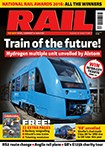
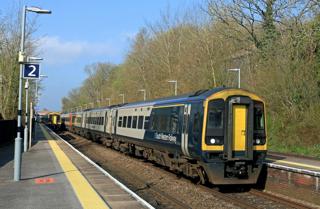
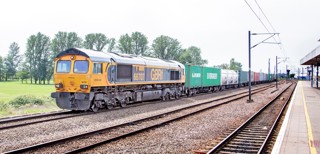
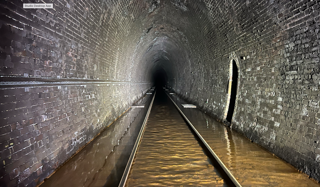
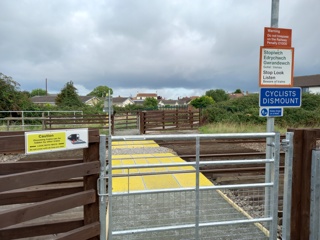












Login to comment
Comments
No comments have been made yet.